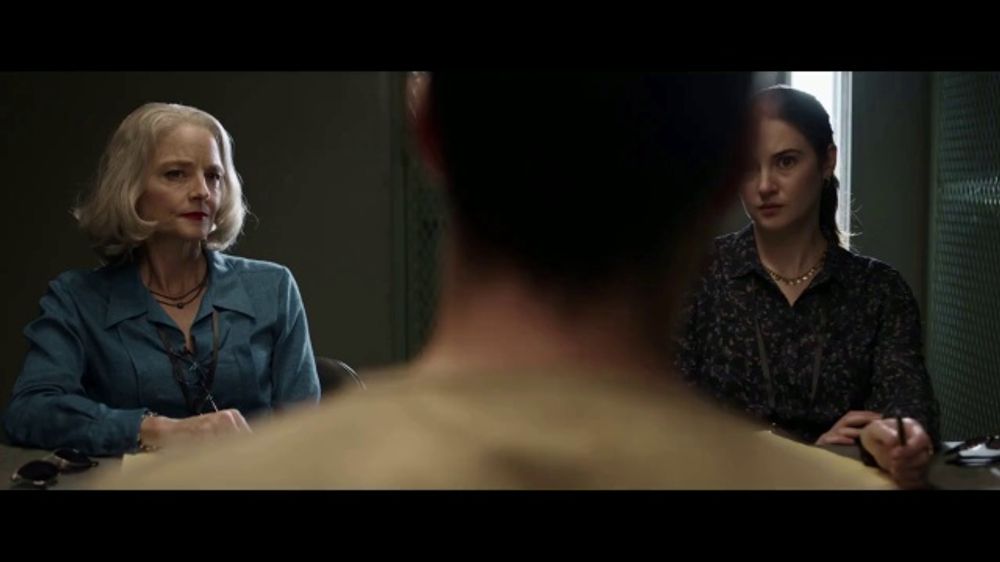The Mauritanian
by George Wolf
In the face of the highest of ideals, America is capable of horrible things. According to his own writings, Mohamedou Ould Salahi believed in those ideals, until he was held without charge in Guantanamo Bay for over 14 years.
Oscar-winning director Kevin Macdonald and a cast full of veteran talent tell the story of The Mauritanian with impressive craftsmanship, a proud conscience and a narrative cluttered with good intentions.
Not long after 9/11, Salahi (Tahar Rahim from A Prophet and The Past) was apprehended with suspicions of being a Bin Ladin confidant and the “Al-Qaeda Forrest Gump.” His was to be the first death penalty prosecution of The Bush/Cheney/Rumsfeld response, until human rights attorney Nancy Hollander (Jodie Foster) took up Salahi’s case pro bono.
The script, adapted from Salahi’s book by M.B. Traven, Rory Haines and Sohrab Noshirvani, picks the emotional teams early. Salahi is a sympathetic character, and quickly charms Hollander’s assistant Teri Duncan (Shailene Woodley) while Hollander herself remains unmoved, committed only to the rule of law.
This commitment serves her well, especially against Marine lawyer Stu Couch (Benedict Cumberbatch), who has a personal and professional stake in seeing Salahi put to death.
Macdonald (The Last King of Scotland, State of Play, One Day in September) breaks from the pack of similarly-themed films with a tone that shifts between self-congratulations and tearful apology. The “rough justice” abuse Salahi suffers is clearly barbaric but still feels sanitized, and part of a larger question the film eschews in favor of heavy hearted hindsight.
But there isn’t a false note in this cast. Even when their character arcs may feel predetermined, every player – from principals to supporting – delivers enough heart and humanity to keep the lessons of Salahi’s ordeal resonating.
Landing at a time when the conscience of the country is literally being voted on, The Mauritanian is a committed if somewhat unwieldy reminder of the stakes.















